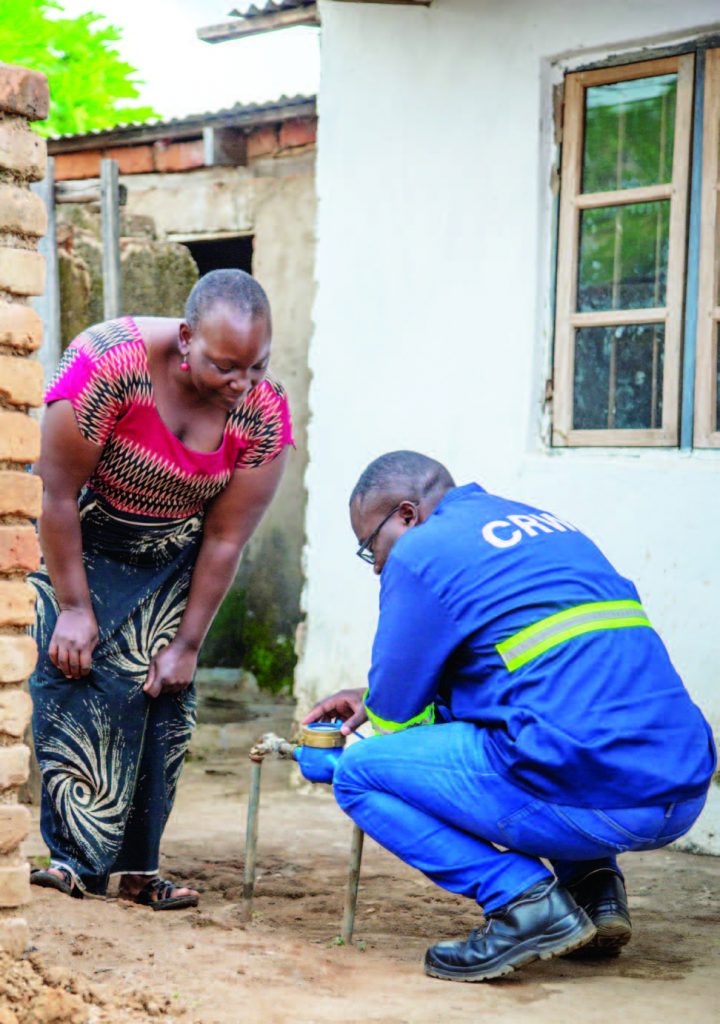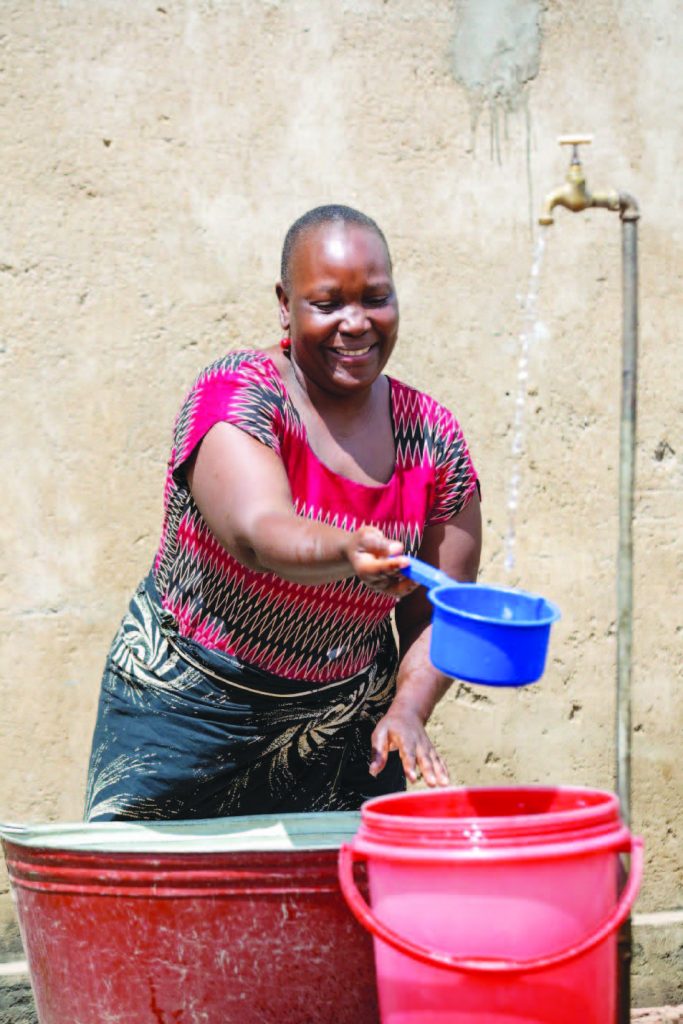‘I’m a happy water user’
Improved water supply in Ntcheu has made a utility’s fiercest critic its walking advert, our Staff Writer JAMES CHAVULA writes.
Victoria Benjamin, 43, confesses becoming the “happiest customer” of the Central Region Water Board (CRWB) two years after she uprooted and returned a meter in protest against erratic supply.

“When things go wrong, I say it. When it’s fine, I give thanks,” she says.
Her tap has rarely run dry since last year when CRWB drilled two high-yielding boreholes in Chiole Valley. The project was funded by the World Bank in partnership with the Government of Malawi to mitigate the effects of the 2015 drought in 18 of the country’s 28 districts.
Tipping point
For her household and seven tenants in New Lines, the solar-powered groundwater pumping has ended unbearable dry-outs fuelled by prolonged drought and siltation of surface water sources.
The mother-of-four came to a tipping point when the tap connected in 2001 and her hilly location stayed dry for three years.

“As the new houses took shape in my community, taps rarely produced for months. So I confronted the district CRWB scheme manager Samuel Khomani to come and uproot the water meter because I was paying meter rentals for no gain,” Benjamin narrates.
The assertive customer repeatedly phoned the water supplier and marched to the utility’s offices before surrendering the meter, angrily.
For over a year, she paid casual labourers almost K500 a day—a tenth of her monthly water bill—to bring her bucketfuls from overcrowded boreholes and nearby streams.
The long walks in search of water, exorbitant costs and high risk of catching waterborne infections from unprotected wells compelled Benjamin to change her mind.
“I was terrified by the financial and health cost of water problems,” she recalls. “When I heard of the solar-powered boreholes that now provide water for Ntcheu District, I quickly applied for reconnection.”
The CRWB customer does not regret her turnaround as her community now enjoys constant water supply—unless faults occur.
The additional groundwater pumps in the district have reduced the water problems caused by weather shocks made worse by climate change and deforestation.
CRWB has installed two high-yielding boreholes in Ntcheu, two in Dedza, and one in Salima and another in Ntchisi. The six pumps have expanded reliable access to potable water.
The pumps in Ntcheu, Ntchisi and Dedza districts use both solar energy and grid power, guaranteeing uninterrupted water supply during blackouts.
“I don’t regret asking for reconnection. With continuous water supply, I phoned the water board official to thank and encourage them to keep it up,” says Benjamin.
Khomani, says improved water supply has mended CRWB relations with its customers. The bond snapped in 2018 when the district was hit by drought in southern Africa.
“CRWB has official channels for receiving customers’ feedback, but our relationship was strained by intermittent water supply that forced Benjamin to confront me not once or twice, but many times. I am happy that she got reconnected and she is happy with our services,” he states.
Counting the gains
CRWB offices in Ntcheu now welcome visitors seeking new connections or reporting faults.
Khomani and his team connect 20 new customers a month, raising water access from 16 725 beneficiaries to 36 253 within a year of reliable water supply.
Bankum Malunga, CRWB zone manager for Dedza and Ntcheu, says the high-yielding pumps have greatly improved water supply and revenue.
He explains: “Previously, we could only give our customers for half a day, but the two districts now have water all day, every day. That means better lives and more money.”
And Benjamin excitedly shares the benefits of piped water with her neighbours, workmates and friends.
She states: “My cry was a cry of many. But I am now the happiest water user because my community no longer faces water problems.
“With improved water supply, the government won’t be spending millions treating preventable diseases such as cholera.”





